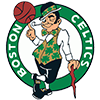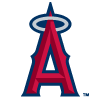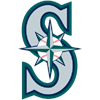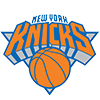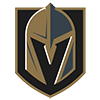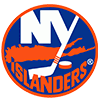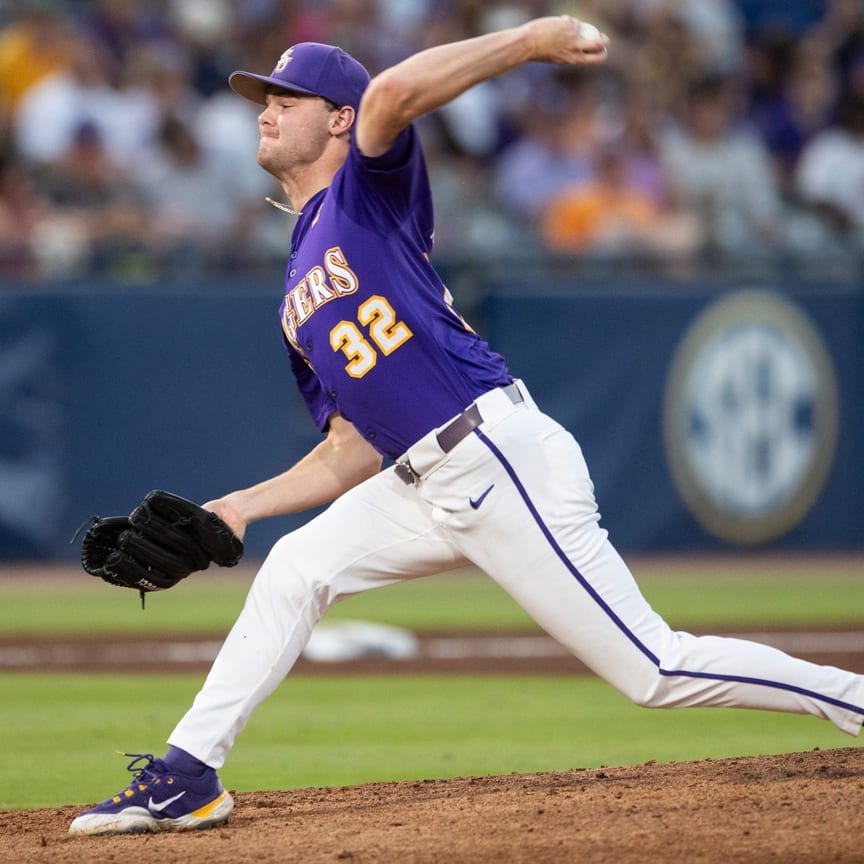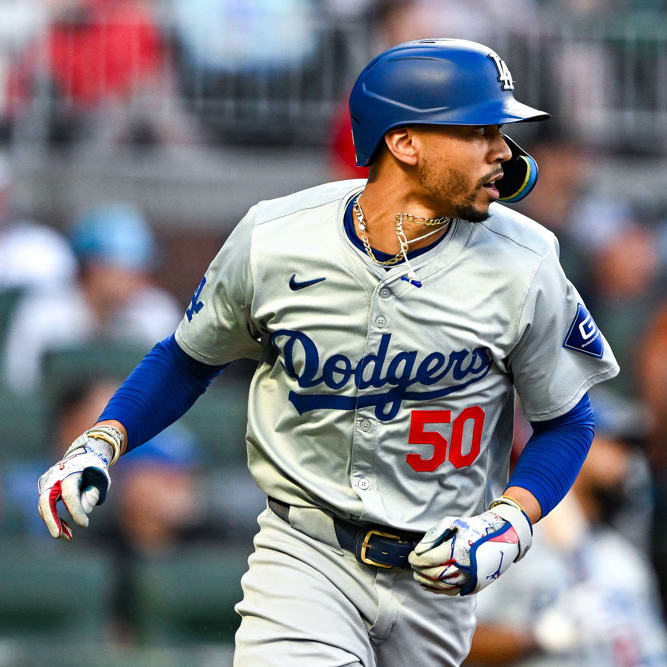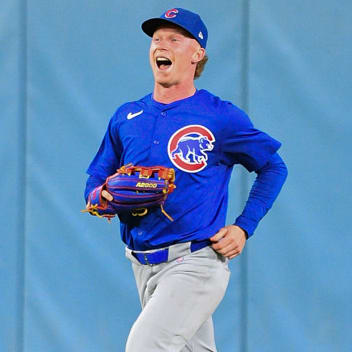Before each season the last 19 years I've written a story at RotoWire with my best bets for the season-long win totals (this is the 20th edition). I'm a big fan of the season win total bets since I started making them in person in Las Vegas back in the late 1990s. I've used several standards of sabrametrical analysis to find teams that appeared to be good historical bets.
I've had a good track record, winning 50 of 87 bets (with one push) for a 57.4 percent win rate. (Here are last year's picks.) My best bet each season is 18-14 (I had multiple biggest bets some years). I'm a little better on bets of $100 or more (I vary my bet size to emphasize how strongly I feel about the pick) where I'm 13-9 (59.1 percent). I'm most impressive when looking at the total amount bet, where I've been correct 64 percent of the time ($3,200 in winning bets, $2,000 in losers — not factoring in the vig*).
However, this season is quite different. I was almost finished with my season-long win total picks article just before the MLB season shut down due to the pandemic. I'd even placed some of these wagers at a legal sportsbook in Iowa (welcome to the new U.S. Sports betting landscape). Of course, they're now all void with the move to the shorter season, which starts Thursday.
Faced with a 60-game season, do my methods, which largely depend on a regression to the mean, still hold up? Probably not as much, but that doesn't mean I won't try.
Here's my take on each team with more analysis below on those I selected as my "bets."
| TEAM | 2019 WINS | 2020 O/U | 162-GAME EQUIV | MY PICK |
|---|---|---|---|---|
| Arizona Diamondbacks | 85 | 31.5 | 85.1 | Under |
| Atlanta Braves | 97 | 33.5 | 90.5 | Over |
| Baltimore Orioles | 54 | 20.5 | 55.4 | Under |
| Boston Red Sox | 84 | 30.5 | 82.4 | Under |
| Chicago Cubs | 84 | 31.5 | 85.1 | Under |
| Chicago White Sox | 72 | 31.5 | 85.1 | Under |
| Cincinnati Reds | 75 | 31.5 | 85.1 | Under |
| Cleveland Indians | 93 | 33.5 | 90.5 | Over |
| Colorado Rockies | 71 | 26.5 | 71.6 | Under |
| Detroit Tigers | 47 | 21.5 | 58.1 | Under |
| Houston Astros | 107 | 35.5 | 95.9 | Over |
| Kansas City Royals | 59 | 24.5 | 66.2 | Under |
| Los Angeles Angels | 72 | 31.5 | 85.1 | Over |
| Los Angeles Dodgers | 106 | 37.5 | 101.3 | Under |
| Miami Marlins | 57 | 24.5 | 66.2 | Under |
| Milwaukee Brewers | 89 | 30.5 | 82.4 | Over |
| Minnesota Twins | 101 | 34.5 | 93.2 | Over |
| New York Mets | 86 | 32.5 | 87.8 | Under |
| New York Yankees | 103 | 37.5 | 101.3 | Under |
| Oakland Athletics | 97 | 33.5 | 90.5 | Over |
| Philadelphia Phillies | 81 | 31.5 | 85.1 | Over |
| Pittsburgh Pirates | 69 | 25.5 | 68.9 | Under |
| San Diego Padres | 77 | 30.5 | 82.4 | Over |
| San Francisco Giants | 77 | 25.5 | 68.9 | Under |
| Seattle Mariners | 68 | 24.5 | 66.2 | Under |
| St. Louis Cardinals | 91 | 31.5 | 85.1 | Over |
| Tampa Bay Rays | 96 | 33.5 | 90.5 | Over |
| Texas Rangers | 78 | 28.5 | 77.0 | Over |
| Toronto Blue Jays | 67 | 27.5 | 74.3 | Over |
| Washington Nationals | 93 | 33.5 | 90.5 | Over |
For this exercise, I'm using Odds from FanDuel Sportsbook, which I grabbed July 20.
When I look at a upcoming baseball season, there are eight methods I use to judge which teams might be a good bet: Three are statistical, four are observations I've had watching the bookies set season-long lines for MLB and other sports and lately I've thrown in a wild-card pick with no particular theoretical basis. Here's the breakdown on these theories and the teams I decided to actually wager on.
The Johnson Effect
The Johnson Effect argues that a team that scores more runs or allows fewer runs than most statistical formulas would suggest, is bound to regress the next season. For example, if one team scores more runs than sabrmetrical formulas such as Runs Created or OPS might suggest, then it will score less the next season. The theory works based on the fact that sometimes a team has more success than it should just based on pure luck. A bad bounce here, a fluke play there — they can add up in one season and make a team look more powerful than it should be.
My favorite type of statistic for this analysis is a tool called the Pythagorean Theory. You probably learned the Pythagorean theory in trigonometry, but in baseball it means that the ratio of a team's wins and losses will be similar to the relationship between the square of its runs scored and the square of its runs allowed. If the runs a team scores and gives up in any given season don't translate into the expected win total from the Pythagorean Theory, that means something odd took place that should turn around next season.
Using the Johnson Effect and applying the Pythagorean Theory, which teams look like they'll rebound in 2020? Here are the top teams that should have seen more or fewer wins based on their 2019 runs allowed/created than they actually tallied:
| Milwaukee Brewers | +8 |
| San Diego Padres | +7 |
| Baltimore Orioles | -6 |
| Chicago Cubs | -6 |
I usually like to look for teams that have a differential of 10 or more games. None of these teams fit the profile, so I'll pass on this bet. The Brewers are a team I expect to bounce back even though their run differential suggests they should be worse this season, so this would give me pause to bet their over of 30.5 wins.
The Plexiglas Principle
This theory says that any team that improves dramatically in one season is likely to decline the next season.
What teams made dramatically improved from 2018 to 2019?
| Minnesota Twins | +23 |
| Los Angeles Dodgers | +14 |
| Washington Nationals | +11 |
| Texas Rangers | +11 |
| San Diego Padres | +11 |
| Chicago White Sox | +10 |
Since 1970, teams that have improved by 19 or more games declined by 7.1 wins the following season. The decline is even sharper for teams that have improved by 23 or more games (-10.97 games). The Twins have a 7.85-win decline built into their line. It may be a worthy bet just on principle, but two factors have me hesitating. Last year's Twins team broke the all-time record for home runs, which would point to a reason for them to be one to buck the trend. They also added another 30-home run hitter (their sixth in the lineup) in Josh Donaldson. The Twins also benefit from the easiest schedule in the 60-game format as they play all their games against the two weakest divisions (their own AL central and the NL central). So, I'll pass on this bet. (Fair warning that I'm a Twins fan and the past few years I have been wrong on betting their win total.)
The Reverse Plexiglas Principle
When a team has consistently been a winner and then experiences a sudden drop off, there is a strong likelihood that its win total will rebound. Or at least that's my theory. I haven't had a lot of success with this bet (1 for 4).
Here are the teams that declined the most in 2019:
| Boston Red Sox | -24 |
| Seattle Mariners | -21 |
| Colorado Rockies | -20 |
| Detroit Tigers | -17 |
| Pittsburgh Pirates | -13 |
| Chicago Cubs | -11 |
I don't see any bets here. The Red Sox declined last season and then got worse in the offseason by trading Mookie Betts and David Price. All the other teams are the downward slope of a rebuild. Only the Cubs stand out, and their decline wasn't too sharp and fits their downward trend since their 2016 world series victory.
The last thing I look at is what teams the bookies think will have the biggest improvement or decline.
The Bottom Feeder Bet
This is totally from a non-scientific study of watching the bookies set the lines on expected wins over the years. People tend to care less about the bad teams in any sport, so the line is set a bit lower to entice folks to bet on these doormats. I've won 6 of 9 bets since 2001 with this theory. Let's look at this year's candidates.
| TEAM | 2020 O/U | 162-GAME EQUIV |
| Pittsburgh Pirates | 25.5 | 68.85 |
| San Francisco Giants | 25.5 | 68.85 |
| Kansas City Royals | 24.5 | 66.15 |
| Miami Marlins | 24.5 | 66.15 |
| Seattle Mariners | 24.5 | 66.15 |
| Detroit Tigers | 21.5 | 58.05 |
| Baltimore Orioles | 20.5 | 55.35 |
Since 2001, there have been five teams projected by oddsmakers to win fewer than 64 games. Four of those teams won fewer games the next season for an average decline of 2.3 games. It's a small sample size, but I won a bet taking the under on the Orioles winning just 58.5 games last season.
Will the Tigers and Orioles continue the recent trend? Even a bad team can get hot for short stretches. The Mariners began last season 18-14 before losing 94 games. The Rangers were 32-28 after 60 games, but missed the playoffs and won just 78 games. While the shorter season introduces more variance, losing teams also have less incentive to call up prospects as they look toward 2021 since they can't give them lengthy stretches of playing time. Plus, those prospects will just be practicing in minor league camp, not facing the rigors of a minor league season, which limits their ability to hit the ground up when called up. The youth and prospect boost these teams often get late in the season may not be a factor. Still, given the short season and variance, I don't think I can take the under on either the Orioles or Tigers, even with the Orioles facing a tough schedule against only AL East and NL East opponents.
The Book's Biggest Movers
| Los Angeles Angels | 13.05 |
| Chicago White Sox | 13.05 |
| Cincinnati Reds | 11.05 |
| Detroit Tigers | 10.05 |
| Houston Astros | -11.15 |
The White Sox won the offseason (or at least most improved) with high-profile signings of Edwin Encarnacion, Yasmani Grandal, Dallas Keuchel, Gio Gonzalez and trading for Nomar Mazara. Plus, they have a young core that appears poised to take a big leap. Still, this is usually the team to fade as the young core may not all develop at the same time. And a leap of more than 10 games (or the 60-game equivalent) in one season is difficult. They may be a year or two away. I'll bet $25 the White Sox don't win 31.5 games. The Angels may be another fade, but their top-end talent this season gives them more opportunity. More on that in a bit.
The Book's Non Movers
| New York Mets | +1.75 | |
| Baltimore Orioles | +1.35 | |
| Chicago Cubs | +1.05 | |
| Colorado Rockies | +0.55 | |
| Arizona Diamondbacks | +0.05 | |
| Pittsburgh Pirates | -0.15 | |
| Texas Rangers | -1.05 | |
| Boston Red Sox | -1.65 | |
| New York Yankees | -1.75 | |
| Seattle Mariners | -1.85 |
The sportsbooks have a lot of teams they think will stay the same. It was similar last year when the sportsbooks projected nine teams within two games of their previous year's record. One team that stands out for me on this list is the Pirates. The sportsbooks basically have the Pirates staying the same, but all signs from trades (trading Starling Marte) and injuries (losing Chris Archer for the season) point to them taking another step backward in their rebuild before moving forward. I'll bet $100 that Pittsburgh wins less than 25.5 games.
Wild Card
Always bet less than 100 wins.
Since I've been keeping track in 2001, only one team was picked by the sportsbooks to win more than 100 games: the 2005 Yankees, who were listed at 102 wins. I took the under on the Yankees that year and was rewarded when they "only" won 95 games.
This year we have two teams projected to win the equivalent of more than 100 games by the sportsbooks:
| TEAM | 2020 O/U | 162-GAME EQUIV |
|---|---|---|
| New York Yankees | 37.5 | 101.25 |
| Los Angeles Dodgers | 37.5 | 101.25 |
I get why the totals are so high. Last year, the haves and have-nots (or the trying and not-trying) divide in the AL was stark. Three teams won more than 100 games in a league for the first time in history. However, there are some signs the AL may not be as crazy polarized in 2020. The White Sox are trying. The Blue Jays signed a free-agent pitcher and have a wealth of high-pedigree hitters just reaching the majors. The Angels spent some money. Just those three teams alone could make it so the top teams take a few steps back.
But also, just on principle, I have to take the under on any team projected to win more than 100 games. So much needs to go right to win 100 games in any scenario. I can see the downside for both teams. The Yankees already have starting pitching injuries. I doubt it has that much impact, but who knows. And maybe all the negative press they're getting will rattle their psyche and cause them to slip back a bit. Even winning 99 games is a superb season, so it's not like I think either of these teams will stumble. I think both will win their division. I just think 100 games is too high to be a given. I'll wager $25 the Dodgers and Yankees don't win 37.5 games.
Lastly, some other wild-card bets. My theory is that in a short season with some potential roster chaos due to the epidemic, that it's likely a good year to take some long shots to win a league title or world series championship. With a 60-game season, depth may not be as much as an issue.
The Angels may have the best player in baseball (Mike Trout) and the best athlete in baseball (Shohei Ohtani) along with some elite talent (Anthony Rendon when healthy, Andrelton Simmons with his glove). Their pitching staff has some talented arms but health concerns ( Griffin Canning, Andrew Heaney). A lack of depth would have had me usually take the under as their stars likely couldn't offset many holes in a 162-game marathon season. In a short sprint of 60 games, perhaps that won't matter and the pitchers can stay healthy. The team has plenty off issues as the regular season begins, such as if Mike Trout will miss a significant part of the season to ensure he's COVID-19 free for the birth of his child and Rendon's oblique injury. It's a long shot, but perhaps Trout is only absent a few games and the top players carry the day for a few weeks and the playoffs. I'll take them to win the AL at +1800.
And since taking all unders is boring, I'm taking the over on the Tamp Bay Rays. It was a bet I made in March, and I'll do so again. If any team appears ready for a 60-game season, it's the team that discards traditional ways of operating. I could see the team using plenty of openers and frequent substitutions to take advantage of the larger rosters the first half of the season (30-man rosters for two weeks and then 28 for another two weeks). Tampa Bay also may be second only to the Dodgers for depth with tons of pitching prospects and perhaps the top prospect in the game in Wander Franco. If the Angels is a bet that depth doesn't matter, the Rays is a bet that depth will pay dividends if used creatively. I'll bet $50 the Rays win more than 33.5 games.
That's not a bet based on any kind of sabremetrical theory or sportsbook pattern, but I'll break the mold a bit for such an oddball season. It should be fun.
To recap, here are my over/under win total bets for 2020.
| TEAM | BET | THEORY |
|---|---|---|
| Pittsburgh Pirates | $100 on less than 25.5 games | Book Non-Mover |
| Chicago White Sox | $25 on less than 31.5 games | Book Mover |
| New York Yankees | $25 on less than 37.5 games | Wild Card |
| Los Angeles Dodgers | $25 on less than 37.5 games | Wild Card |
| Tamp Bay Rays | $50 on more than 33.5 games | Wild Card |
*One note: My bets/track record doesn't try to account for the variations in extra juice you need to pay. Most lines are -110, meaning the sportsbook takes about five percent on each bet. The "vig" tends to be higher on these bets than for single games. Sometimes the vig can vary widely, such as when 2016 Texas Rangers under of 83.5 wins was at -140 (the under was +110). It's another method for the bookmakers to alter how the money is coming in on each side so it gets to their comfort level. Or it's a way to change the odds without moving the win total.
If you are making a lot of bets, this is a serious factor in the math. But I don't bother to take that into account because I'm more focused on the overall wins number for a team perspective. Plus, I forgot to keep track of the vig in early years.
I vary the dollar amounts below as a way to show how confident I am in the bet (the $300 bet on the 2004 Royals is my all-time high), so there are some holes in the math if you added in all the varying vigs.
And why should you care what I think? I've made money 11 of the last 19 years (with one push). Here's the breakdown:
| YEAR | W/L | TEAM | BET | THEORY |
|---|---|---|---|---|
| 2019 | Won | Kansas City Royals | $50 on less than 69.5 wins | Book Mover |
| 2019 | Lost | San Francisco Giants | $50 on less than 73 wins | Book Non Mover |
| 2019 | Lost | Texas Rangers | $25 on less than 70 games | Book Non Mover |
| 2019 | Won | Baltimore Orioles | $50 on less than 58.5 wins | Bottom Feeder |
| 2019 | Won | Washington Nationals | $25 more than 88.5 games | Reverse Plexiglas Principle |
| 2018 | Won | Arizona Diamondbacks | $100 to win fewer than 85 games | Plexiglas Principle |
| 2018 | Won | Detroit Tigers | $50 on less than 66.5 wins | Book's Non Movers |
| 2018 | Won | San Diego Padres | $25 on less than 72.5 games | Johnson Effect |
| 2017 | Won | Tampa Bay Rays | $50 win more than 78.5 games | Johnson Effect |
| 2017 | Lost | Pittsburgh Pirates | $100 win more than 82 games | Reverse Plexiglas |
| 2017 | Lost | Los Angeles Angels | $50 on less than 79 wins | Book's Non Movers |
| 2017 | Lost | Texas Rangers | $25 on win more than 84.5 games | Book's Biggest Movers |
| 2017 | Lost | Baltimore Orioles | $50 win more than 80 games | Wild Card |
| 2016 | Lost | Chicago Cubs | $25 win less than 93.5 games | Plexiglas Principle |
| 2016 | Lost | Milwaukee Brewers | $50 win less than 70 games | Bottom Feeder Bet |
| 2016 | Lost | New York Yankees | $25 win over than 85 games | Wild Card |
| 2015 | Lost | Houston Astros | $25 win less than 75.5 games | Plexiglas Principle |
| 2015 | Won | Los Angels Angels | $25 win less than 88.5 games | Plexiglas Principle |
| 2015 | Won | Texas Rangers | $25 win over than 76.5 games | Reverse Plexiglas Principle |
| 2015 | Lost | Boston Red Sox | $25 win over than 86.5 games | Reverse Plexiglas Principle |
| 2015 | Lost | Baltimore Orioles | $75 win over than 82.5 games | Book's Biggest Movers |
| 2015 | Won | Cincinnati Reds | $25 win less than 77.5 games | Book's Non Movers |
| 2015 | Won | Tampa Bay Rays | $50 win more than 78.5 games | Book's Non Movers |
| 2015 | Won | Oakland A's | $100 win more than 81.5 games | Billy Beane Theory |
| 2014 | Lost | Cleveland Indians | $25 win less than 82 games | Plexiglas Principle |
| 2014 | Won | Houston Astros | $25 more than 62.5 games | Bottom Feeder |
| 2014 | Won | Philadelphia Phillies | $50 under on 74.5 games | Book Non Mover |
| 2014 | Won | Oakland A's | $25 over on 86.5 games | Billy Beane Theory |
| 2014 | Lost | Tampa Bay Rays | $100 over on 89 games | Billy Beane Theory |
| 2013 | Won | Toronto Blue Jays | $50 under on 89 games | Book Mover |
| 2013 | Won | Oakland A's | $25 over on 84.5 games | Billy Beane Theory |
| 2013 | Won | Tampa Bay Rays | $50 over on 86.5 games | Billy Beane Theory |
| 2013 | Lost | Kansas City Royals | $50 under on 78.5 games | Billy Beane Theory |
| 2013 | Won | Baltimore Orioles | $25 over on 78.5 games | Wildcard |
| 2012 | Won | Arizona Diamondbacks | $200 under on 86 games | Plexiglas Principle |
| 2012 | Lost | Minnesota Twins | $100 over on 72.5 games | Reverse Plexiglas Principle |
| 2011 | Lost | Kansas City | $100 under on 68 games | Book Non Mover |
| 2011 | Won | Houston Astros | $50 under on 72 games | Johnson Effect |
| 2011 | Won | Milwaukee Brewers | $25 over on 86.5 games | Book Mover |
| 2011 | Lost | Los Angeles Angels | $50 under on 82.5 games | Wild Card |
| 2010 | Lost | Houston Astros | $150 under on 75.5 games | Johnson Effect & Book Non Mover |
| 2010 | Won | Minnesota Twins | $100 over on 82.5 games | Wildcard |
| 2010 | Won | Washington Nationals | $50 under on 72 games | Book Mover |
| 2009 | Lost | Los Angeles Angels | $50 under on 88.5 wins | Johnson Effect & Plexiglas Principle |
| 2009 | Won | Detroit Tigers | $50 over on 81.5 wins | Reverse Plexiglas |
| 2009 | Lost | Baltimore Orioles | $50 over on 72.5 wins | Bottom Feeder |
| 2009 | Lost | Kansas City Royals | $25 over on 76.5 wins | Book Non Mover |
| 2009 | Lost | Philadelphia Phillies | $50 under on 88.5 wins | Book Non Mover |
| 2009 | Lost | Oakland A's | $25 over on 82.5 wins | Billy Beane Theory |
| 2008 | Won | Seattle Mariners | $200 under on 84 wins | Johnson Effect |
| 2008 | Lost | Chicago Cubs | $50 under on 87.5 wins | Plexiglas Principle |
| 2008 | Won | Oakland A's | $50 over on 73.5 wins | Reverse Plexiglas Principle |
| 2008 | Push | San Francisco | $50 under on 72 wins | Book Non Mover |
| 2007 | Won | Cleveland Indians | $50 over on 85.5 wins | Johnson Effect |
| 2007 | Lost | Chicago Cubs | $50 under on 83.5 wins | Book Mover |
| 2007 | Lost | Oakland A's | $50 over on 85.5 wins | Book Mover |
| 2007 | Lost | Minnesota Twins | $100 over on 84 wins | Book Mover |
| 2007 | Won | Arizona Diamondbacks | $100 over on 78.5 wins | Book Non Mover |
| 2006 | Won | Chicago White Sox | $100 under on 92 wins | Johnson Effect & Plexiglas Principle |
| 2006 | Lost | Arizona Diamondbacks | $25 under on 73 wins | Johnson Effect & Plexiglas Principle |
| 2006 | Lost | Tampa Bay Devil Rays | $100 over on 68 wins | Bottom Feeder |
| 2006 | Lost | Milwaukee Brewers | $50 over on 81 wins | Book Non Mover |
| 2006 | Won | Minnesota Twins | $50 over on 83 wins | Book Non Mover |
| 2005 | Won | New York Yankees | $150 under on 102 wins | Johnson Effect |
| 2005 | Won | Milwaukee Brewers | $50 over on 69.5 wins | Bottom Feeder |
| 2005 | Won | San Diego Padres | $25 under on 86.5 wins | Plexiglas Principle |
| 2005 | Lost | Minnesota Twins | $25 over on 89.5 wins | Book Non Mover |
| 2004 | Won | Kansas City Royals | $300 under on 81 wins | Plexiglas Principle |
| 2004 | Won | Houston Astros | $50 over on 91 wins | Johnson Effect |
| 2004 | Lost | Detroit Tigers | $100 under on 66.5 wins | Book Mover |
| 2004 | Won | San Francisco Giants | $50 over on 85 wins | Book Mover |
| 2004 | Won | Florida Marlins | $50 over on 83 wins | Book Mover |
| 2003 | Won | Anaheim Angels | $100 under on 91 wins | Plexiglas Principle |
| 2003 | Won | Oakland A's | $50 over on 93.5 wins | Book Mover |
| 2003 | Won | New York Mets | $50 under on 86 wins | Book Mover |
| 2003 | Won | Toronto Blue Jays | $50 over on 79 wins | Book Non Mover |
| 2003 | Won | Boston Red Sox | $50 over on 91 wins | Johnson Effect |
| 2002 | Won | Oakland A's | $200 over on 90.5 wins | Book Mover |
| 2002 | Won | Philadelphia Phillies | $100 under on 82.5 wins | Plexiglas Principle |
| 2002 | Won | Pittsburgh Pirates | $50 over on 68 wins | Bottom Feeder |
| 2002 | Lost | Seattle Mariners | $50 over on 94 wins | Reverse Plexiglas Principle |
| 2002 | Lost | Colorado Rockies | $50 over on 77 wins | Johnson Effect |
| 2002 | Lost | New York Yankees | $50 under on 99 wins | Reverse Bottom Feeder |
| 2001 | Lost | St. Louis Cardinals | $100 under on 89.5 wins | Plexiglas Principle |
| 2001 | Won | Chicago White Sox | $100 under on 88 wins | Plexiglas Principle |
| 2001 | Won | Houston Astros | $100 over on 82.5 wins | Johnson Effect & Plexiglas Principle |
| 2001 | Won | Philadelphia Phillies | $25 over on 74.5 wins | Bottom Feeder & Johnson Effect |
| 2001 | Won | Minnesota Twins | $25 over on 73 wins | Bottom Feeder |
| 2000 | Won | Arizona Diamondbacks | $100 under on 93 wins | Plexiglas Principle |
| 2000 | Won | Minnesota Twins | $100 over on 64 wins | Bottom Feeder |









